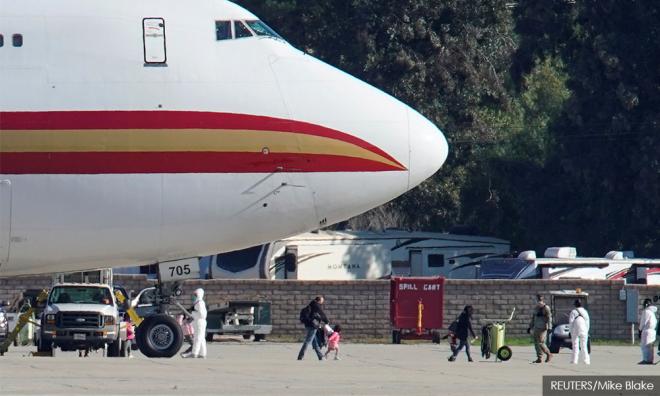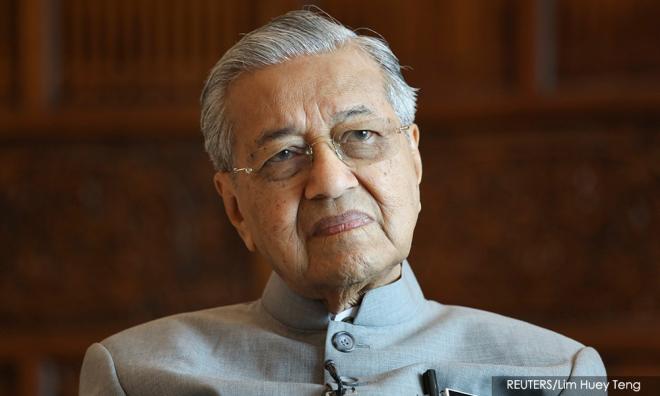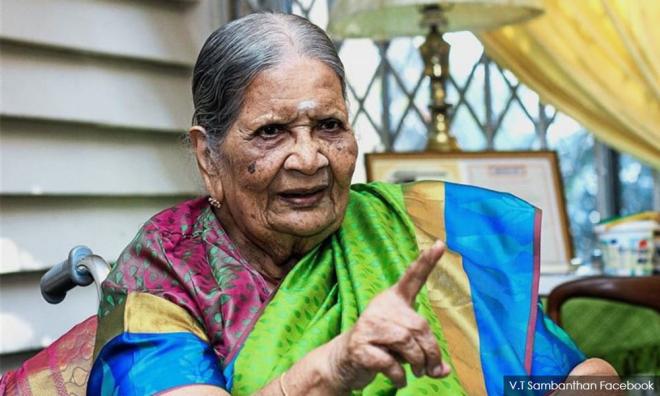A blog dedicated to reviewing the history of the Altantuya murder case (which returned to the headlines after an explosive
statutory declaration by one of the two bodyguards convicted of her murder) has today revealed damning new evidence unearthed in Australia.
According to the dedicated online online portal
Decipherings.com, posted by lawyer Americk Sidhu who has represented witnesses in the case, an Australian judge revealed in an immigration appeal court ruling last year that Sirul Azhar Umar had told a closed legal hearing in November 2018 that he “
had been ordered to kill the victim because she was a Russian spy“.
The judge concluded at the time that he was not satisfied with this explanation by the then Deputy PM Najib Razak’s bodyguard, who together with a superior colleague Azilah Hadri was found guilty of shooting Altantuya, so he rejected Sirul’s plea that he was merely acting under orders.
The detainee has therefore remained in limbo in Sydney, given that Australian law forbids him being returned to be executed in Malaysia. This is how Judge Rayment related the matter in his judgement saying that he could not rely on Sirul’s plea given that it was uncorroborated evidence:
Evidence was led from the applicant before me when the matter resumed before me in November 2018 that the applicant had been ordered to kill the victim because she was a Russian spy. He said again that he had refused to carry out that order. The uncorroborated evidence given by the applicant that orders were given to him to assassinate a Russian spy did not satisfy me that orders had been given to him in those terms, or that he was acting on any such basis. [Immigration Tribunal Deputy President B W Rayment OAM QC, 18 February 2019, Sydney – see posting on the blog]
However, as those following the trial and related events back in Malaysia will be well aware there has been considerable corroborating evidence that the two killers, neither of whom knew their victim, were instructed to kill her by their superiors (an order that appears to have been sweetened by a cash payment). Malaysians are also aware that those superiors had a very strong motive, which was to silence Althantuya, who was blackmailing them over the kickbacks linked to the Scorpene submarine deal where she had acted as a translator.
Azilah SD Matches Sirul’s Testimony A Year Before In Australia
And now in the past few weeks a separate statutory declaration (SD) has emerged, this time given by the second killer, Azilah Hadri, who has remained in separate solitary confinement in Malaysia and has now lodged an appeal for a retrial against his death sentence.
This is what Azilah Hadri (who was the senior of the two and who claimed he took orders directly from ex-DPM Najib Razak to kill Altantuya before enlisting Sirul to assist him) said in his SD a full year after Sirul made his own application to the Australian authorities:
The DPM then told me that a foreign spy from a foreign country is in Kuala Lumpur and is trying to threaten the DPM and his special officer known as Razak Baginda.
The special officer was a good friend of the DPM whom I had met during my official assignment in London sometime ago.
I was informed that the foreign spy was a woman and very dangerous because of the many secrets she knew about national security.
What Americk Sidhu points out is that the detail relating to the orders to ‘shoot a spy’ is remarkably similar in both sets of testimonies by the two men. It provides the corroborating evidence that the Australian judge complained was missing from Sirul’s statement. “Perhaps” says the lawyer “if Mr. Rayment had the opportunity of reading Azilah’s subsequent statutory declaration, he may have come to a different finding and Sirul would be free”:
What is unbelievable is the fact that two incarcerated felons, in different parts of the world, with no means of communicating, could come up with the same details independently of each other.
The chances of this happening are so remote that one would be more than inclined to accept that what both said about a ‘foreign spy’ must be the truth.
This would mean that the orders given were indeed to get rid of Altantuya because she was a foreign spy and an inherent danger to the well-being of the nation.
This detail lends credence to what Azilah said in his SD, which in turn, supports what Sirul said before the AAT [Australian Appeals Tribunal], and vice versa. [
Decipherings Part 14]
Admittedly, the junior bodyguard Sirul had described Altantuya as a ‘Russian’ as opposed to a merely ‘foreign’ spy but his assumption with that detail is logical and an explanation for the two men’s willingness as members of the so-called Special Action Squad to agree to set about killing a woman they did not know.
Indeed, Azilah had boasted to Najib’s special advisor Razak Baginda (according to Baginda’s own affidavit given for bail) that he had already despatched 6-10 others so this lady would present no problem for him:
“After listening to me about the first disturbance AH boasted that he was the cause of 6 10 deaths and he could solve my problem. When I heard this I stressed to AH, I told him forcibly, that nothing untoward should happen to the deceased. I immediately made it clear to him that if anything untoward should happen to the deased, her family would blame me and my family for it. I assumed that as a police officer AH understood my first warning. I also believed that AH, as a police officer who was introduced by DSP Musa, would not do anything untoward or that was against the laws as regards to the deceased” [Testimony given by Razak Baginda against whom charges were dropped early in the case]
The shocking evidence of the existence of such an official squad operated by the BN government and tasked with performing extra-judicial killings (murders) is another scandal waiting to be examined of itself.
Meanwhile, the evidence of official cover-up over what happened to Altantuya has been overwhelming and deserves the fullest re-investigation.
The two operatives from this so-called Speical Action Squad had remained silent during their their original trial with bags over their heads to hide their features, save for Sirul crying out as they were sentenced that they had been made ‘scapegoats’ by ‘powerful people’ who had not been called to give evidence.
However, the more evidence that has emerged, including this latest bombshell indicating the bodyguards had been led by their superiors to understand that Altantuya was a foreign spy with secrets against the state, the clearer the actual motive has become. Indeed, as Americk Sidhu has reminded in earlier postings on the blog, Sirul first started to hint that he had been acting under orders soon after he arrived in Australia, having been released on appeal.
There is powerful evidence he had then himself set about trying to blackmail Najib to the tune of AUS$17 million in order to keep silent and not ‘bring down a PM’. It was not long after those blackmail attempts that the Federal Court over-ruled the Appeal Court and reissued warrants for the bodyguard’s arrests and sentences for murder, making Sirul once more a wanted man.
Cover-ups
More importantly, no evidence has emerged to provide any other explanation for the murder than that the two men were instructed to do the killing to protect Razak Baginda, who was being blackmailed over the Scorpene kickbacks by Altantuya – and more importantly his boss DPM Najib, who was ultimately in charge of the bodyguards.
As Razak Baginda stressed in his testimony above, Azilah was sent to him by DSP Musa who was working for Najib, to whom Baginda had complained about those blackmail attempts.
Yet, in what has been extensively derided as a rigged trial DSP Musa’s crucial evidence was never called by the prosecution or defence, so the court never heard why Musa had sent Azilah to see Baginda to discuss his problem over Altantuya.
It was the failure to call such crucial witnesses and to establish a motive for the murder that subsequently caused the Appeal Court to release the two men. Malaysians were left wondering if that had been the plan all along, hence the overall cooperation and silence of the ‘scapegoats’?
Then the surprise development had taken place, which was that the Federal Court over-ruled the Appeal Court and demanded the two be rearrested and executed after all (something that would never be permitted under the justice systems of normal democratic states).
Had a newly extremely powerful person decided (in the light of Sirul’s own blackmail attempts perhaps) that these two men, with all their evidence about the murder, were simply too dangerous to be set free and left alive?
Had an original plan to let them both do time until the affair died down, at which point an Appeal Court could set them free failed to secure the situation as anticipated?
After all, by the time the Federal Court reversed the ruling that set Sirul and Azilah free the world had come to know far more about the ‘dangerous secrets’ Altantuya had been using to blackmail Razak Baginda and his boss Najib – namely the truth about the multi-million dollar kickbacks over Scorpene had been cited by judges in a French court investigation that described the payments as being made to then defence minister Najib.
Interest had therefore grown not died away by the time the bodyguards were set free, leaving the now even more powerful politician yet more vulnerable on this dangerous matter of motive in a murder case that so clearly led to his door.
The last thing the now prime minister therefore needed was for the likes of Sirul and Azilah to tell the newspapers why Musa Safri, the man in charge of Najib’s security detail, had sent Azilah to see Baginda to help solve the problem of Altantuya and what exactly the orders were. Sarawak Report has
detailed the extensive attempts on the part of lawyers linked closely to BN to manage Sirul’s evidence to the Australian authorities and to keep him silent.
Now the tables have turned again. Faced with execution and the realisation that Najib, no longer in power can neither pay nor save them, the bodyguards who for years had hinted they had material to themselves blackmail an all powerful prime minister, have now started producing full confessions and statements to different authorities.
And as we have seen, they are both essentially telling the same logical story that meets with all known facts. Their testimony is that it was Najib who had the pressing motive to escape exposure for grand corruption over a defence deal (a pattern of behaviour that appears entirely in keeping with his conduct in office) and that he used his bodyguards to carry out the murder under the guise that Altantuya was a spy.
That is what Azilah says Najib personally told him and what Sirul says he was given to understand by Azilah. Now that is damning, corroborative evidence and nothing raises a single contradiction in the chain of that damning evidence. All Najib has come up with so far is a string of desparate cover-ups, seeking to use power and money to silence the whole affair.
It is time to retry the case and with all the evidence this time to determine where the truth in fact lies.
* Note: Americk Sidhu has represented Sarawak Report in a number of cases in Malaysia.
SARAWAK REPORT















